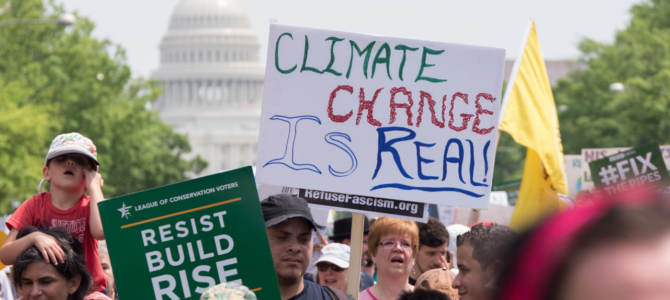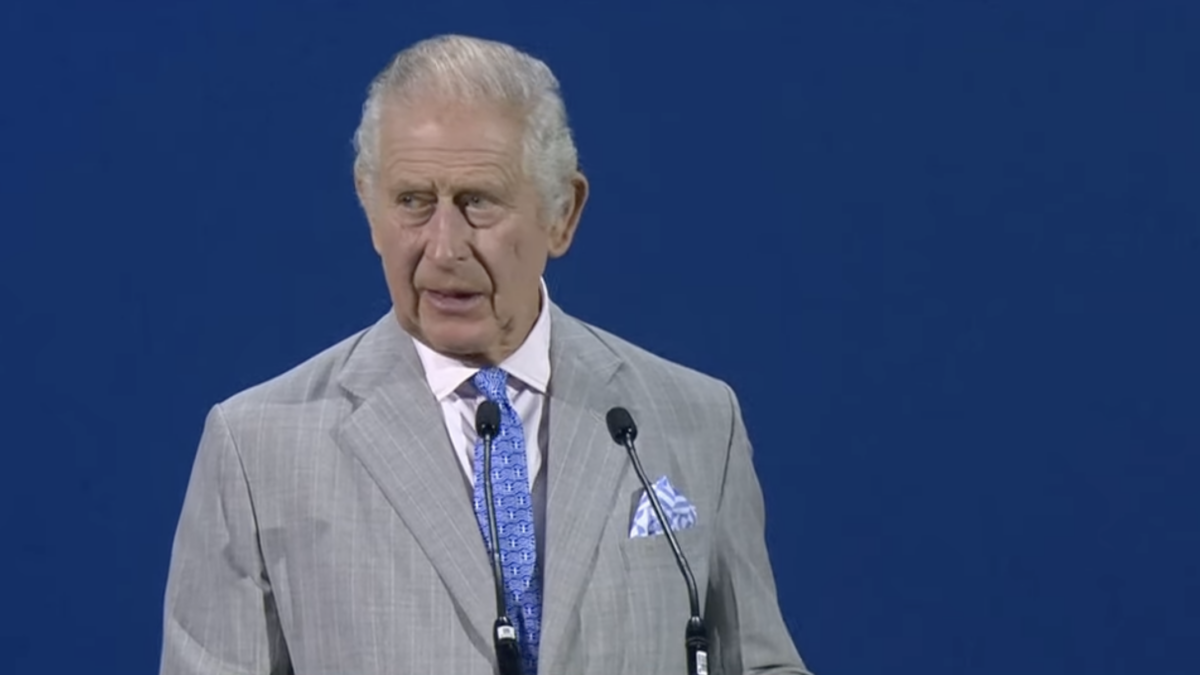
I am not a scientist. I have no scientific background beyond what I’ve picked up from reading things written by and about actual scientists. So I am, therefore, in no position to critique any scientific theory as a theory.
That said, I am a skeptic when it comes to climate change. To be clear, I don’t doubt that the climate changes — obviously it does. I don’t doubt that human activity has an effect on this change. What that effect is, and to what extent it influences the entire system, I don’t know. As a scientific concept, I have no opinion on climate change.
But it isn’t just a scientific concept. It is a political issue, and that is what I am skeptical of.
You see, I can’t judge from what I don’t know (e.g., climate science), but I can judge from what I do know. I know something of history, something of philosophy, and something of human nature. I can observe what people are doing at the moment and listen to what they actually say.
Doing so, I note that the vast majority of people, including the cause’s most vehement advocates, are no more qualified to judge it scientifically than I am. Does anyone really believe that any of those people marching in Washington have the knowledge and ability to interpret data from a global climate survey? Have they sunk the necessary hours of study and objective research into this subject to be able to say what they say with any certainty, assuming they could ever be certain?
Of course they haven’t. They are going entirely off of what certain experts have told them — namely, a specific selection of experts who have come to their attention because the media has elevated them and political groups have championed and funded them. These climate change apologists are in no position to critically examine these expert claims.
Average Voters Cannot Verify Climate Change Claims
Now, if there is, for instance, a genuine international crisis (e.g., Venezuela), then people have resources to verify it. They can read testimonies and see photos and video of the event, and in the last resort, they can go there to see for themselves. If it is a question of domestic policy, people can consider their own experience and knowledge to judge which approach to, say, taxation seems to be the best.
People cannot do this with climate change. The signs of the crisis come down to weather and to intensely complex reams of data that require specialized knowledge to interpret. The latter is out of reach for almost everyone. The former could be used to justify just about any theory since it is a proverb for unpredictability and changeableness.
If you tell people the earth is getting warmer, they will remember all those hot summer days and snowless winters they experienced and say that warming is very likely. If you tell them it is getting cooler, they will remember the mild summer days and bitter winter nights and say cooling is also very likely.
The fact is, the average voter has no way to adequately judge the question of climate change. Yet he is assured that it is an existential crisis that must be dealt with immediately and by any means necessary. Politicians and media activists are thus urging him to favor certain actions to combat a crisis that he has no way to verify. Worse, this message tends to be directed toward impressionable young people — that is, those with the highest emotions and the least ability to examine these claims.
That is an extremely dangerous state of affairs for a representative government.
More about Government Control than Science
This ties in with the fact that climate change activists and experts do not act like they are talking about science. As I say, I am no expert, but I do know enough of the subject to know that in science you have to take everything into account, especially anything that seems to tell against your theory. Science is never exactly “settled” because new instruments or new techniques could always present new observations that don’t fit with the common view. This is what happened with the heliocentric theory, Newtonian physics, genetics, and with every other major scientific breakthrough.
So when I see scientists and media personalities talking about “climate change denial,” as if it were a mental illness, accusing those who are skeptical of their theories of being in the pay of oil companies or otherwise arguing in bad faith (overlooking their own government grants and celebrity status in the process, I might add), and inflating the numbers of those who agree with them, it looks highly suspicious. This is not how responsible scientists or politicians behave.
Then there is the proposed solution. There never seems to be a technical solution — for instance, if the Earth’s atmosphere is being flooded with carbon dioxide, perhaps we could find a way to release quantities of a gas that might dilute the greenhouse effect. Much less is there a question of whether a warmer climate might have a net-positive effect, or at least be a manageable problem. No, it’s all certain doom within our lifetime unless we adopt tighter state control. More recently, climate change advocates have been openly calling for socialism as the panacea to the Earth’s ills.
In other words, the proposed solution to what we are told is an existential crisis is, conveniently, to give more power to the very same people who are informing us that this crisis exists.
Don’t Give Progressives a Blank Check to Power
Finally, since the average voter cannot verify that the crisis exists, he also could never say when the crisis was over. The same people who tell you it exists, who assure you that everyone who denies it is simply ignorant or evil, are also the only ones who could tell you when or if the crisis were ever solved and what must be done to solve it. An ambiguous, unverifiable crisis that only the state has the means or authority to combat is a blank check to power.
So, simply put, I am a climate change skeptic because the people advocating it do not act as if it were a verified scientific conclusion. They act as if it were a political expedient at best and a pseudo religion at worst. They tarnish and dismiss anyone who opposes them, fill impressionable young people with images of immanent doom caused by their political and social enemies, and use this cause to justify grabbing more and more power.
While I may not be able to say what the climate is doing, I can say what climate activists are doing, and from that, I can judge that they should be kept as far away from positions of power as humanly possible. We haven’t seen what happens when the ice caps melt, but we have seen what happens when demagogues claiming to protect against an endless and ambiguous crisis get into positions of power, and it never ends well.









